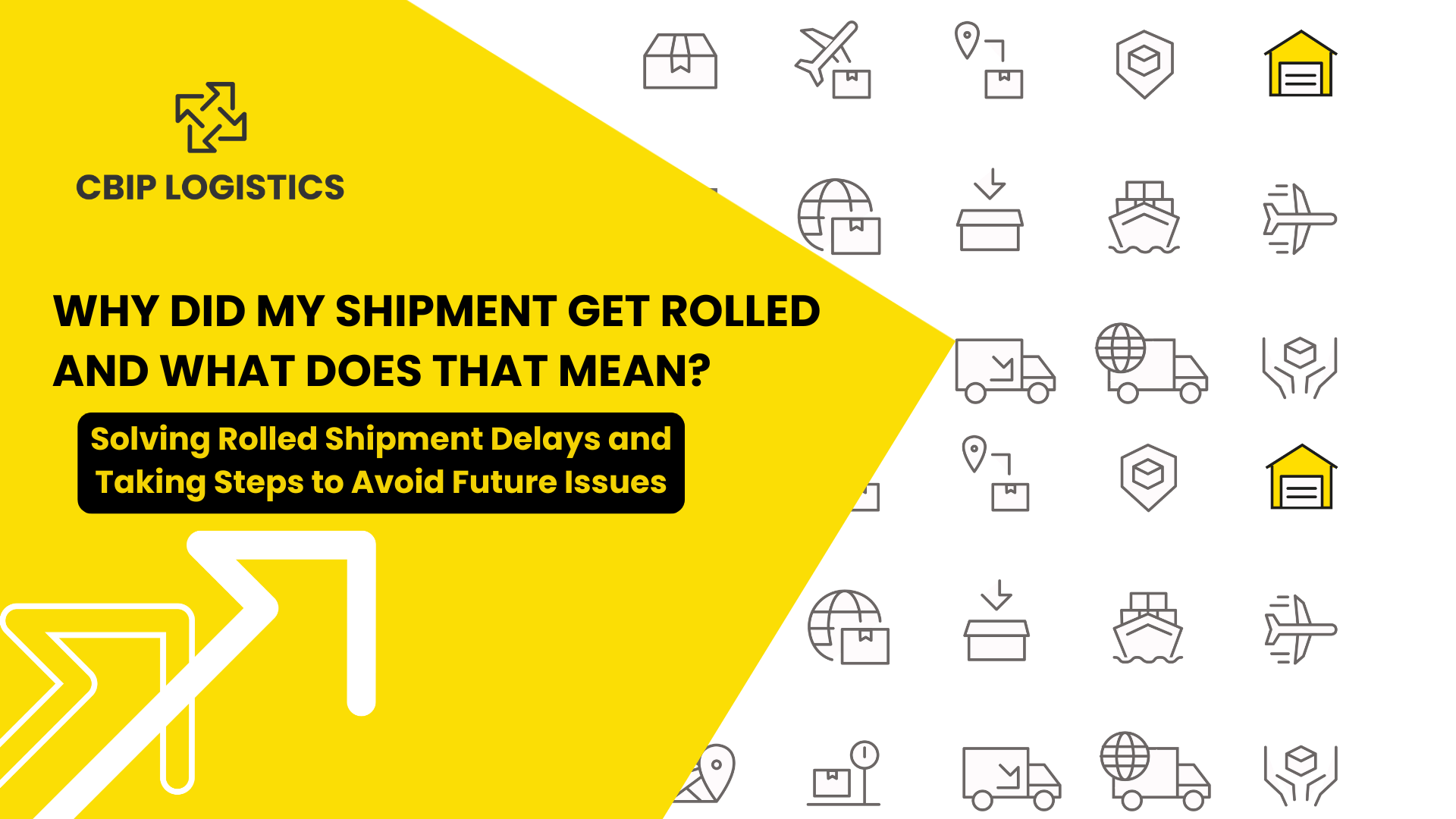Why Did My Cargo Shipment Get “Rolled”, and What Does That Mean?

Blank sailing and other delays ran rampant in 2024, and there’s no doubt that 2025 will come with its own set of supply chain challenges. As an e-commerce brand, delays are incredibly frustrating, particularly when you don’t understand the cause of the delay.
Unfortunately, that is often the case with rolled cargo delays.
Having your cargo rolled means that your cargo didn’t make it onto the vessel it was scheduled for, either because they ran out of space on the vessel, or due to a myriad of other things that could have gone wrong with the ship or your cargo..
There are a few things to know about rolled cargo, namely that there are measures you can take to avoid it happening to you, and there are certain times of the year when it is more likely — and those are the times when you should prep for it.
However, if you are reading this article because you have had your cargo rolled and you are not sure what to do next, you are probably stressed.
We’ll first cover what to do when your cargo gets rolled, and then we will get into what to know to avoid future situations like the one you’re in!
Read About CBIP’s Global 4PL Logistics Services
What to do when your cargo shipment gets rolled
When your cargo is rolled, your number one priority should be making sure that you can get your cargo on the next sailing date.
The shipping company will be responsible for rescheduling your cargo for this new date, but you need to make sure that the problem that kept your cargo from shipping out when it was supposed to won't keep your cargo from shipping out again.
The first thing you need to do is determine if your cargo was rolled due to some clerical error with your shipment.
You’ll need to contact the shipping company, or have your logistics provider do that for you, to make sure that there isn’t some mistake with your cargo: things like improper documentation or improper packing, etc.
You need to get on this immediately; if the issue is not resolved by the next sailing date, your cargo will continue to get rolled!
How to avoid getting cargo rolled
Having your cargo rolled cannot always be avoided. There are a lot of different factors at play when you are shipping, and several things that can go wrong and lead to your cargo missing the boat.
Common problems are:
- Overbooking
- Vessel omissions. AKA the vessel skipped the port
- Vessel weight issues
- Mechanical issues
- Missed cut-off days
- Document problems
Some of these things are out of your control, but some of them are things you and your logistics provider can keep an eye on to better avoid getting cargo rolled.
Once your cargo is rolled, you or your logistics provider will need to reschedule the cargo to go on a different ship.
RELATED: Unpacking the Top 5 Causes of Shipping Delays
Tis the season… to have your cargo rolled
Sometimes, a mistake is made, and your cargo will be rolled randomly on an off-season.
However, the majority of cargo gets rolled during peak season, when space on cargo vessels is tight. You should expect rolled cargo instances to be much more likely around peak season and the weeks leading up to Golden Week and Chinese New Year.
You need someone in your corner when cargo gets rolled: Choose CBIP
When your cargo gets rolled, it feels personal. “Why me?” is the thought going through a lot of retailers’ heads.
Unfortunately with logistics, this kind of thing just happens sometimes. Then, you have to go clean up the mess, figure out a contingency plan, and get things moving again.
That’s where we come in. Hi, we are CBIP, your global 4PL provider. We specialize in helping brands like yours manage global logistics for DTC — and that doesn’t just mean we set up your logistics and forget you.
Actually, we take an unusually hands-on approach to helping our clients. If something happens on the ground, at your warehouse, in a foreign port, or on the road, we get someone out there on the ground to figure out the issue, find a solution, and get your cargo moving again, ASAP.
Want to learn about how partnering up could turn all your logistics nightmares into logistics success stories? Reach out to schedule a free consultation call.
Have questions about rolled cargo and shipping requirements? Find me on LinkedIn.






